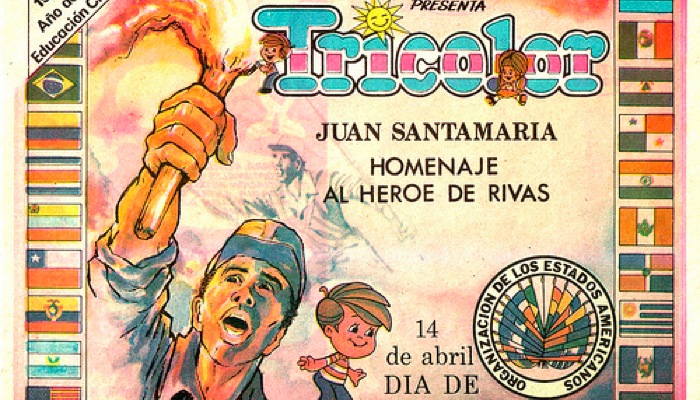
Juan Santamaría
Today is Día de Juan Santamaría, a national holiday. On this day, 153 years ago, the Costa Rican militia fought William Walker, a filibuster from Tennessee who wanted to conquer Central America and turn it into a slave-holding empire for the Southern Confederacy. Walker already controlled Nicaragua and had ordered the invasion of its southern neighbor. A Costa Rican militia had marched to Nicaragua, to the city of Rivas. The Rivas Battle of April 11, 1856 was fierce. General Mora proposed to torch the Mesón de Guerra, a thatched-roof building that served as Walker’s command center. Two soldiers tried but failed. Then Juan Santamaría, a poor young farmer from Alajuela, bravely volunteered to burn it down. According to oral tradition, he ran carrying a torch, was repeatedly shot by the enemy, but managed to reach the building, and before falling to the ground dead, threw the torch that burned down the stronghold. Walker and his men escaped unharmed, but Costa Rica did win the battle and secured its sovereignty. Some historians believe Juan Santamaría didn’t die during the heroic act, but later, of cholera. There was a huge outbreak of this terrible disease when dead bodies were thrown in the wells of Rivas, and when the soldiers returned home, they brought the disease with them. One tenth of the population died. But I digress. For Costa Rica, who never fought for independence against Spain (they found out they were no longer a colony a month after Spain announced it), the battle against Walker was it’s war for independence, and because every country needs a hero, Juan Santamaría became its national hero, the only Costa Rican with its own holiday.
Saturday, April 11, 2009